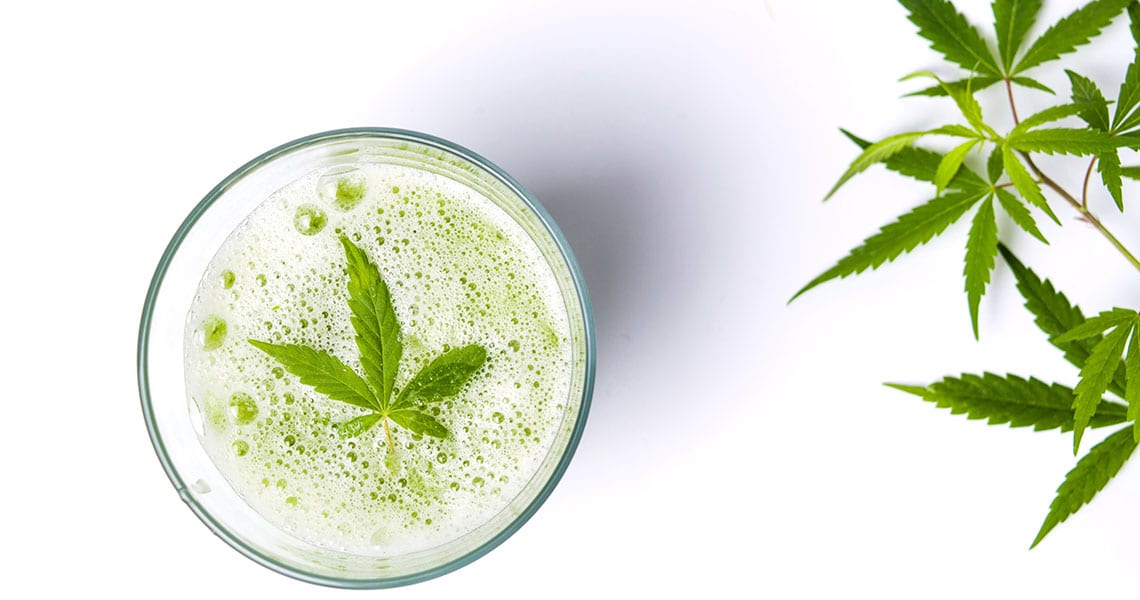Cannabis Drinks Market Scales Up

Drinks based on plant extracts – in particular, those containing cannabis- or hemp-derived ingredients like CBD – are one of the fastest growing segments of the beverage category.
What is CBD?
CBD (cannabidiol) is a chemical extracted from hemp and marijuana plants (Cannabis sativa L.). While CBD is an active ingredient in cannabis, it does not cause the ‘high’ or psychoactive effects associated with the chemical THC (tetrahydrocannabinol) which is also found in the plants. For product manufacturers and developers, the challenge is to provide the positive benefits of CBD without the other negative effects of cannabis.
Market opportunities
Around the world projected valuations for the recreational CBD products (as opposed to medical markets) have recently been revised downwards, however the demand is clear. The global cannabis drinks market is predicted to treble in value by 2024, reaching US$1.82bn by the end of 2020, and US$5.8bn within four years.
This growth is seen across every segment of the drinks industry, from alcoholic drinks to wellness beverages and everyday drinks like tea and coffee. Large global brands including AB InBev and Molson Coors have announced plans to produce CBD-containing products, and while the global impacts of Covid-19 have slowed some aspects of product development and marketing, there is no doubt that a huge market remains untapped.
Different stages of market development, recognition and approval around the world present challenges to the development of a large market with common standards.
Technical challenges
Many of the functional ingredients which are produced are not soluble. To overcome this, it is necessary to produce an emulsion, which requires careful handing during processing. The technical challenges do not just revolve around the issues of product formulation. The exact nature of the compounds found in the plant, and which can be extracted, can vary according to the growing environment of the plants and how they are processed, and regulations in some countries reflect this.
Scaling-up production
Cannabis-infused drinks have the same requirements for pasteurisation, sterilisation, cooking or cooling as any other beverages which contain specific ingredients.
High-Temperature, Short-Time (HTST) pasteurisation techniques help to preserve the flavour and texture (including the crucial emulsion), while cooling can involve chilled water or specific materials such as glycol. Evaporation using heat exchangers is also an efficient method of concentrating products to achieve the required formulation.
Recapturing and reusing heat from other sources (such as surplus heat from cooling operations or spare boiler capacity) can be an effective way of increasing capacity or adding a new production process without the need for major new heating or energy infrastructure.
The type and model of heat exchanger will depend on many different factors, but HRS has a complete range of products from simple tube-in-tube designs to reciprocating scraped-surface designs, all of which combine efficient heat transfer with delicate product handling; ensuring that products remain in emulsion and that the product does not foul the equipment.
Whether you are setting up a production line or looking to expand into new markets, HRS has the proven technology to help produce your CBD drink.